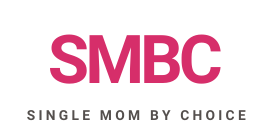Becoming a mother is a deeply personal and life-altering decision. For women considering single motherhood, the timing can play a crucial role in shaping their journey. Each stage of life presents its own set of pros and cons, and understanding these can help women make informed choices about when to embark on the path of single motherhood. In this blog post, we will explore the advantages and disadvantages of becoming a single mom at different ages.
Early Adulthood (20s – early 30s):
Becoming a single mom at a younger age has its unique benefits. Here are some pros and cons to consider:
Pros:
a. Energy and resilience: Younger women often have more physical energy and resilience, which can be advantageous in managing the demands of parenting.
b. Long-term bond: Starting motherhood early can provide more years to develop a strong bond with your child.
c. Adaptability: Younger mothers may find it easier to adapt to the changes and challenges that come with parenthood.
Cons:
a. Limited life experience: Younger women may have less life experience, which can affect their ability to handle the emotional, financial, and practical aspects of single parenthood.
b. Educational and career goals: Early motherhood may interrupt educational pursuits or career advancement, impacting financial stability and personal growth.
c. Support system: Building a reliable support network may be more challenging at a younger age.
Midlife (Late 30s – 40s):
For women in their late 30s to early 40s, single motherhood comes with its own set of pros and cons:
Pros:
a. Emotional maturity: Women in this age range often have a better understanding of themselves, their goals, and their desires, which can contribute to their effectiveness as mothers.
b. Financial stability: Many women in their late 30s or 40s have established careers, providing financial stability for themselves and their children.
c. Established support network: By this stage, women may have built a solid support system of friends, family, or community, which can provide invaluable assistance and emotional support.
Cons:
a. Fertility challenges: The chances of conceiving naturally decrease with age, and assisted reproductive technologies may be necessary, adding emotional and financial stress.
b. Health risks: Pregnancy and childbirth may come with higher risks for both the mother and the child in this age range.
c. Balancing responsibilities: Women in their 40s may face the challenge of juggling the demands of single motherhood with other responsibilities, such as aging parents or career commitments.
Later in Life (After the 40s):
For women considering single motherhood later in life, the following pros and cons should be taken into account:
Pros:
a. Emotional readiness: Older women may have a clearer sense of their values, priorities, and the type of parent they want to be, contributing to more informed decisions.
b. Financial stability: By this stage, many women have achieved financial stability, providing a secure environment for both themselves and their child.
c. Support network: Having a reliable support system in place becomes more likely as women build connections and establish relationships over time.
Cons:
a. Fertility challenges: The chances of natural conception decrease significantly, and fertility treatments may be necessary, which can be emotionally and financially demanding.
b. Energy and stamina: Raising a child requires significant physical and emotional energy, which may become more challenging for older mothers.
c. Longevity and future planning: Starting motherhood at a later age may limit the number of years the mother can enjoy with her child, potentially affecting the child’s future and support system.
Ultimately, the decision to become a single mom at any age is highly personal and dependent on individual circumstances, readiness, and support systems in place. Understanding the pros and cons at different ages can help women make informed choices that align with their goals and values. It is crucial to weigh the potential challenges against the rewards and seek the necessary emotional, financial, and practical support to navigate the journey of single motherhood successfully.



